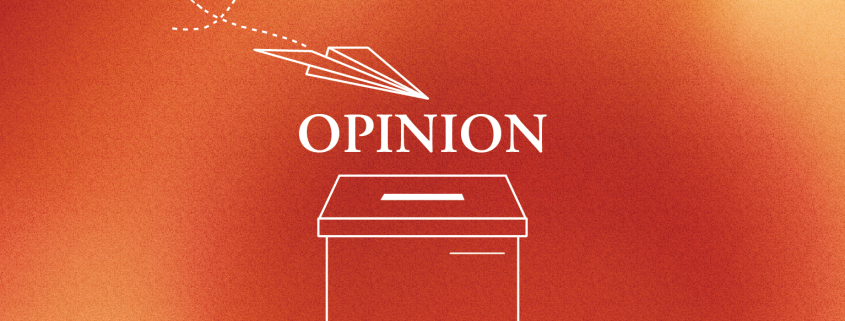Attachment Theory: Learning as I go
Jenette McCurdy, filmmaker, writer and perhaps best known as the legendary butter sock swinger, Sam Puckett from “iCarly,” released her new book: “I’m Glad My Mom Died.” Although the memoir officially comes out Aug. 9, I envy the writer’s ability to unpack her own experiences in childhood. On YouTube, McCurdy opened up about her abusive relationship with her mother led her to develop an eating disorder, something she continues to work through everyday.
The ways in which our parents and caretakers have conditioned us — or failed to condition us — throughout childhood, adolescence and into adulthood seep into our entire perception of the world. Attachment theory, a well-known and powerful tool in psychology, is something everybody should explore. At its core, it’s the idea that our relationships are grounded in our childhood bonds with our parents or caretakers.
Attachment theory originally focused on mother-infant bonding, but in recent decades, research has multiplied to explore how those attachments are inextricably linked with our natural tendencies in relationships throughout adulthood. According to Victoria A. Fitton in her article, “Attachment Theory: History, Research, and Practice,” there has been a shift from “theory related to physiological needs toward a theory of primary instinctual responses which function to promote social interaction.”
A simplified model of Attachment Theory by The Attachment Project helps us understand how different attachment styles affect people in their romantic relationships. My therapist blurting out that I have attachment style issues felt transformative. Aside from being a little too well-versed in “Daddy Issues” by The Neighbourhood, I never really had an understanding of what my childhood meant for my identity, or how to process and make sense of it.
I understand now that feeling disconnected and neglected by my parents throughout my childhood translates into various aspects of my life: how I perceive myself, how I crave romance and affection and how I feel most beautiful when someone pretty is by my side. It translates into my relationships and how I feel broken and helpless when people pull away.
The point of attachment theory is not to tuck our childhood away into a category, nor is it to angrily shove it in a wooden memory box with the view that our parents are the result of all our issues and there is nothing we can do about it. Attachment theory is a lens of understanding, one which gives space for the experiences I have and leaves room for me to unpack and address them.
With this introspection, I can also understand the sobering reality of context. Just as I feel I had “daddy issues,” I know my dad had issues far worse than mine. In his childhood, to have food on the table and not be physically abused for one night was his idea of security, far and disparate from mine. I realize now, after years of being angry, that my parents did their part. They came to America and created generational change to the extent that was imaginable to them.
Now, I have a responsibility to carry it forward and acknowledge that my childhood may not have been everything I wanted it to be, and to find solace in the little and big ways in which my parents have shown up for me. It is allowing myself the possibility of being happy without the company of anyone else. It is rebuilding a relationship with my parents, at my own pace, with what I am willing to give. Something as simple as sending my mom my daily Wordle and doing my best to call my parents.
Anger is a step in the process of healing. I felt angry at my parents for years. Frankly, without that, without validating my own pain, without understanding what I never experienced, what I missed out on, I can’t really understand myself.
When I was a kid, I fixated on growing up and moving on. But now, I know that my childhood will always shape my perception of the big blue world, and remarkably so, my dreams are simpler than ever. I want to play with chalk and blow some bubbles. I’m grateful to be having these realizations at the age of 19.
While I can’t change how my parents raised me, I find glory in my reality: My childhood is still actively being shaped. I have the opportunity to pinpoint my pain and work through it. To meld missed experiences into future exploration and expression. To be raw and vulnerable to others and find peace in the process. To challenge my own past relationship with my body and how I seek happiness from others.
The thing that once made me feel so broken is now the thing that brings me intel as to what I want from the life I live. What’s more beautiful than that?

